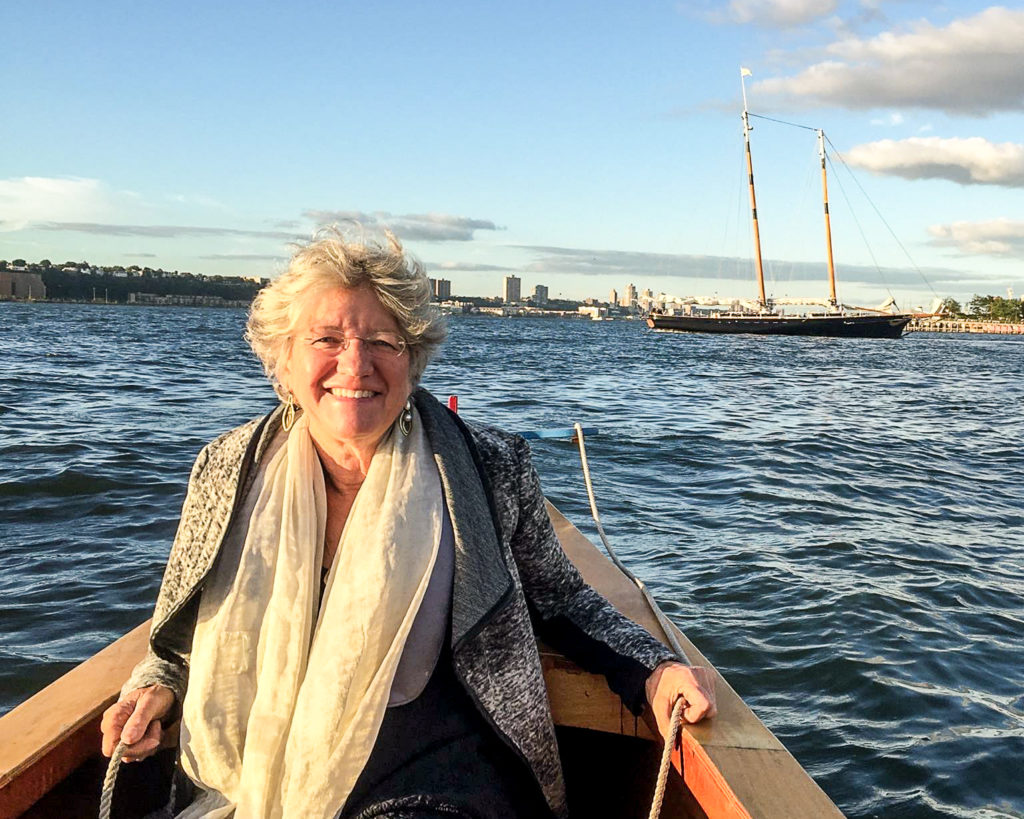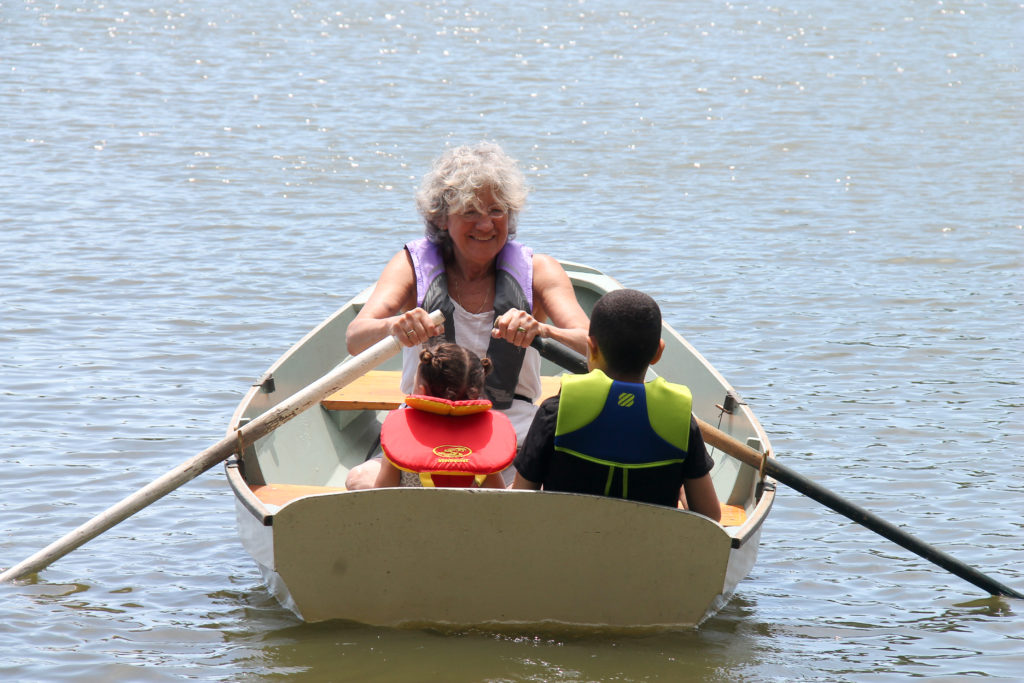I must go down to the sea again, for the call of the running tide
Is a wild call and a clear call the cannot be denied.
John Masefield
I have been around boats my whole life, which is unremarkable except that I lived for five decades on Barrow Street in the heart of the West Village. My father kept two boats in the Bronx on City Island – a sailboat, the Martini, that capsized in the Great South Bay with both of my parents aboard  before I was born. My mother’s foot went through a porthole, slicing her Achilles tendon and she almost bled to death. The scar on her ankle prompted frequent retelling of the almost tragic event.
before I was born. My mother’s foot went through a porthole, slicing her Achilles tendon and she almost bled to death. The scar on her ankle prompted frequent retelling of the almost tragic event.
My father also kept a cabin cruiser on City Island named the Sark – the first two letters of my name and the last two letters of my brother’s name, Mark. I have memories of family voyages to Martha’s Vineyard, fishing trips, and adventures on the Sark. She sank at the dock and Gus, the old salt who worked at the marina, helped my father hire a diver to remove her registration numbers.
Both of my parents came from old money but left it behind to settle into the Bohemian literary scene at the White Horse Tavern and Chumley’s. There, I drank Coke with extra maraschino cherries and played behind the bar and in the kitchen, while my father played chess and drank. He died there in a fight over a chess game on the eve of my eighth birthday. His mother died a few days later and I have been estranged from his family ever since. I do know that his family made their fortune in the pharmaceutical industry selling Mother Winslow’s Soothing Syrup, opium tonic for babies.
I have spent most of my life in psychoanalysis, coming to terms with a childhood rich with risky adventuring on Fire Island and Washington Square thanks to my parents’ laissez-faire style. My brother was not so lucky. He ran away to sea before graduating from high school and eventually became a charter boat captain. We shared many adventures on the high seas before he died of a drug overdose at the age of 64. Alcohol served to assuage the boredom of long voyages between Sag Harbor and the West Indies. On my last voyage with my brother, sailing from Corsica to Gibraltar, the first leg of a transatlantic voyage, I suffered from sea sickness for the first time in my life which turned out to be pregnancy. I did make it to Gibraltar but had to jump ship. I flew home and gave up my life of adventure, risk, and danger to raise my daughter.
Psychoanalysts and interpreters of dreams say that the sea symbolizes the unconscious. According to my psychoanalytic ancestor Carl Jung, the sea is a symbol of the collective unconscious, shared universally by all human beings. I have grown up to be a psychoanalyst by trade but I still enjoy less risky adventures in row boats around New York Harbor. My deep lifelong love of the sea and the boats that carry me there serve to preserve my connection to my father and to my brother and something deep and primitive in myself.
The waters of New York Harbor can be treacherous for mariners who are unprepared to engage and work with the wild forces of nature—winds, tides, and currents. In psychoanalysis, I launch into the waters of the unconscious, mine and my patient’s, and together we row around seeking to engage the forces of human nature—sex, power, fear, envy, hate, and most of all, love.

